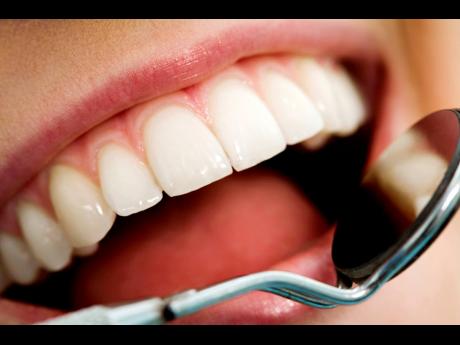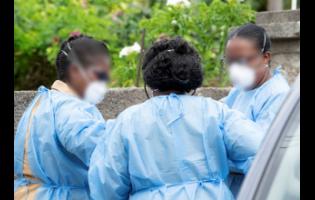Check Up: Why are his gums bleeding?
Dear Readers,
Jerome, who is age 70, writes Check Up that his gums sometimes hurt and bleed.
He has been cleaning his teeth more often (morning, noon and night after meals), but the problem persists.
He doesn’t see any cavities, but he asks Check Up if his ailments are due to infection. He used to smoke cigarettes, so he wonders if this could contribute to the problem.
He stopped smoking more than a year ago.
Well, Jerome does seem to have some knowledge of what could be happening with his gums! Gum disease often results from poor dental hygiene.
Poor teeth-cleaning techniques, not cleaning the teeth often enough, and failure to use dental floss will result in bacteria in the mouth interacting with dead cells and food particles to form ‘plaques’ on the teeth.
These poor oral practices also result in bacterial infection of the gums, which become reddened, swollen and inflamed, and the gums tend to bleed easily!
This condition is called gingivitis, which is a gum disease. In order to prevent gingivitis, care has to be observed when cleaning the teeth.
The following practices will help avoid the soreness, bleeding and painful gums which are associated with gingivitis:
- Choose a toothbrush with soft nylon bristles and blunted ends. Hard bristles can damage the enamel on the teeth and injure the gums.
- Brush your teeth and gums using circular, rotating motions instead of back and forth motions, which can irritate and injure the gums.
- Brush your teeth two to three times daily.
- Floss the teeth every day to prevent plaque formation on the teeth.
- Rinse out the mouth at least once a day with mouthwash.
- Eat a well-balanced diet with vitamin C and calcium. You can also add daily vitamin C and calcium supplements.
If gingivitis is treated early it can be fully reversed, resulting in healthy teeth and gums. If left untreated it can result, ultimately, in tooth loss.
If you notice red, swollen, tender gums, or the formation of pockets between the gums and teeth, if the gums bleed during and after cleaning the teeth, if the teeth seem to be loosening, gums receding or if bad breath has also become a problem, then you should visit a dentist for a full examination and for cleaning of the teeth in the dentist’s office.
Antibiotic treatment is sometimes required.
There are a few situations which can affect the health of the gums:
- Smoking and the use of tobacco products can damage the gums significantly and result in sensitive, sore gums throughout the mouth. Quit smoking!
- Cancer treatment with chemotherapy also often affects the gums, causing them to become inflamed, become sore and to bleed. There are medical treatment suggestions when this occurs.
- Female hormonal changes which occur with puberty, child bearing and menopause can alter hormonal levels in the female body and can result in red, swollen and sensitive gums for a time.
Hopefully, Jerome will practise the advice given. If good results do not result within two weeks he should visit his dentist.
Write Check-Up: PO Box 1731:KGN8 Email arnaj56@gmail.com AJM






































